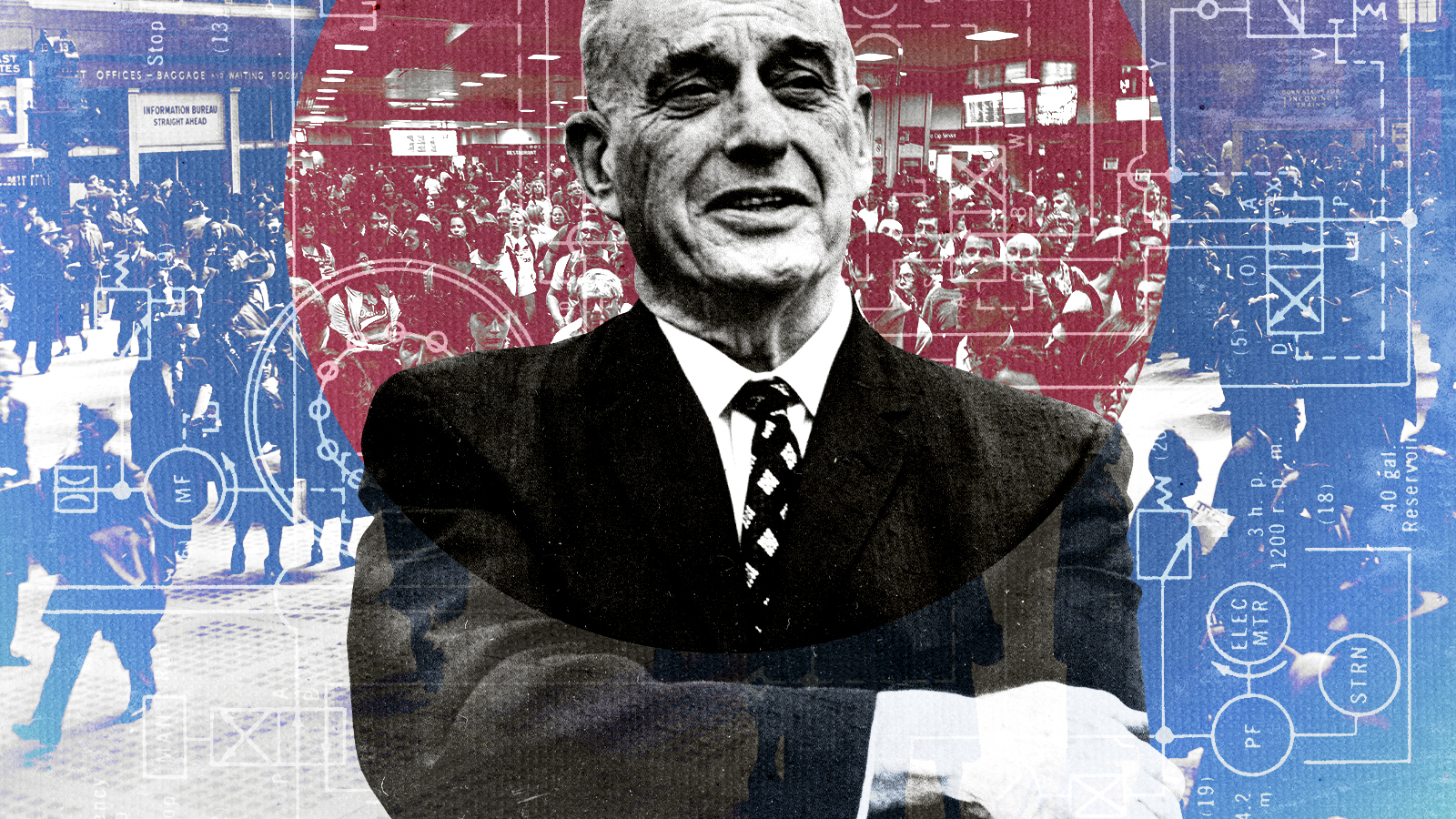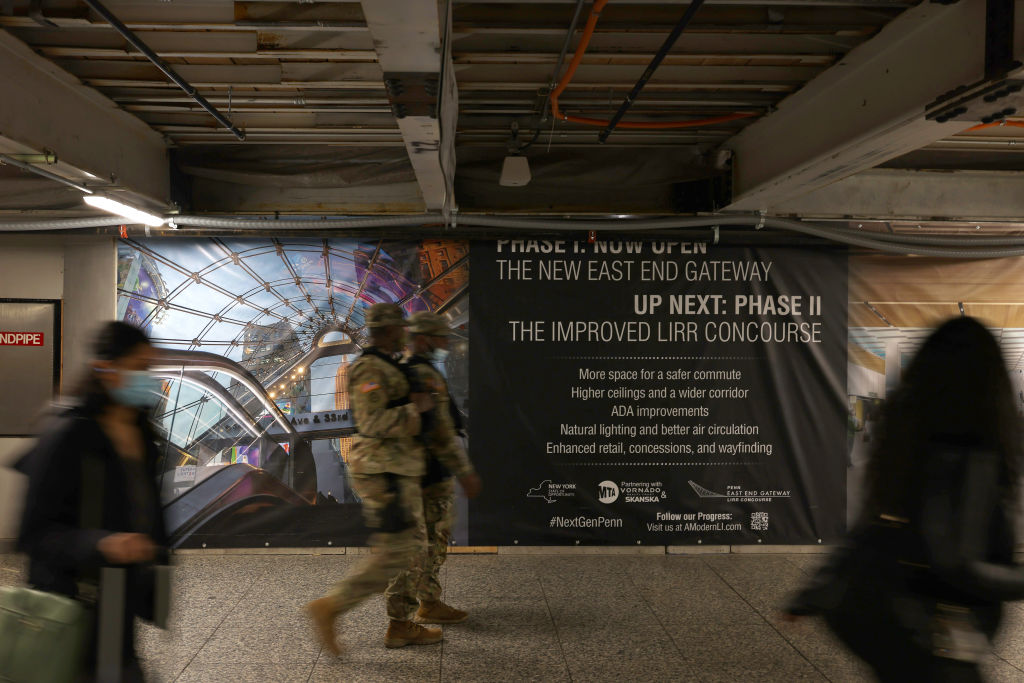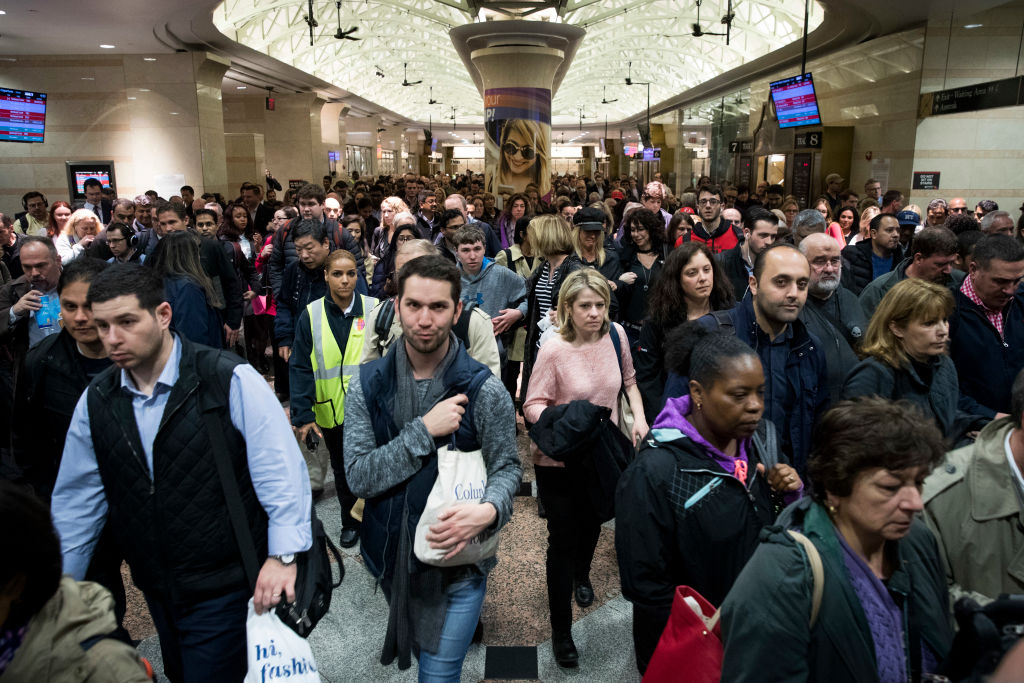Robert Moses helped ruin Penn Station. He'd have made it easier to fix, too.
Preservationists like Jane Jacobs are urbanist heroes. But their rules can stifle.


A free daily email with the biggest news stories of the day – and the best features from TheWeek.com
You are now subscribed
Your newsletter sign-up was successful
Robert Moses has an almost demonic status in the lore of American cities. As depicted by Robert Caro in his Pulitzer Prize-winning 1974 biography The Power Broker, Moses was a racist, antisemite, and bully who combined vast power over New York City's built environment with a paradoxical contempt for urban life. Favoring automobiles over mass transit and foot traffic, Moses presided over the destruction of whole neighborhoods to make room for highways. He even tried to demolish a Central Park playground so patrons of an expensive restaurant would have somewhere to leave their cars while dining. He paved over paradise and put up a parking lot.
Moses wasn't all bad, though. Despite his sins against democracy, sociology, and good taste, the master builder was driven by a vision of a living city that offered affordable comfort to a growing population. Though they weren't always pretty, the highways, bridges, and housing developments Moses planned met genuine needs. And while Moses implemented discriminatory policies that were standard in his day, claims of special animus against minorities (revived last month by Transportation Secretary Pete Buttigieg) are overblown.
If Moses looks better in retrospect than when Caro published his book, his critics now seem less appealing. Preservationists like the author Jane Jacobs are celebrated as heroes who saved historic buildings and walkable neighborhoods from Moses' obsession with modernization and automotive convenience (Caro reportedly cut an admiring chapter on Jacobs from The Power Broker). Their unintended legacy, though, is proliferating regulations that stifle development, raise prices for infrastructure, and constrain the housing supply.
The Week
Escape your echo chamber. Get the facts behind the news, plus analysis from multiple perspectives.

Sign up for The Week's Free Newsletters
From our morning news briefing to a weekly Good News Newsletter, get the best of The Week delivered directly to your inbox.
From our morning news briefing to a weekly Good News Newsletter, get the best of The Week delivered directly to your inbox.
The tensions between brutal dynamism and romantic preservationism were revived this week the New York State Office of Parks, Recreation, and Historic Preservation recommended that the complex including Penn Station, Madison Square Garden, and the 2 Penn Plaza office building should be added to the National Register of Historic Places. If successful, the designation would add another layer of uncertain approvals to plans to renovate or replace the structures. Ironically, the demolition of the original Penn Station beginning in 1963 was a turning point in the struggle against Moses. Although he was not personally responsible, the rapid and politically unaccountable destruction of a Beaux Arts landmark galvanized opposition to his domineering approach.
If you don't see why the historical designation sounds utterly insane to New Yorkers — or almost anyone who travels to the city — it's important to understand that Penn Station is one of the worst places in the city and possibly the world. A warren of dingy passages and bleak tunnels, the present design moved art historian Vincent Scully to pronounce that "[t]hrough [old] Pennsylvania Station one entered the city like a god. ... One scuttles in now like a rat." Look at it:



The poster in that first image actually pledges "higher ceilings" as an improvement to come. There's no mystery about how miserable this building is, how totally unsuited to human happiness, let alone convenience.
After decades of advocacy, the Daniel P. Moynihan train hall opened this year in a former post office building across the street. It's much nicer, but it's designed primarily for Amtrak riders, who make up just a fraction of Penn Station's traffic. Long Island Railroad and especially New Jersey Transit passengers still rely on the underground monstrosity.
A free daily email with the biggest news stories of the day – and the best features from TheWeek.com
Moses is not entirely to blame for this state of affairs, but he is implicated. He did not cause the bad decisions of the struggling Pennsylvania Railroad, which allowed the old station to deteriorate for years before it was finally demolished. And preservationists weren't wrong to treat Moses as an avatar for the historically insensitive, aesthetically blind attitudes that informed its replacement. For Moses and other midcentury planners, remnants of the prewar city were at best impractical luxuries and at worst dysfunctional anachronisms.
That attitude encouraged mistakes with more serious consequences than the annoying but socially trivial demise of old Penn Station. The disfigurement of the Bronx by expressways encouraged a spiral of depopulation and dysfunction from which the borough has never really recovered. Yet "Moses seemed to glory in the devastation," wrote social critic Marshall Berman. The combination of moral certainty, unconstrained power, and personal grandiosity Moses displayed were magnifications of qualities that he shared with a whole generation of American public officials. That's why Caro was drawn to him, not only for his idiosyncratic characteristics but as a symbol of the failures of postwar liberalism.
For all their dangers, though, those qualities also made it possible to rectify mistakes. If it fell short of atonement for the damage he inflicted to the South Bronx, Co-op City near the Westchester border reflects Moses' better side. While not exactly the "working class utopia" he promised, the semi-enclosed development provided relatively affordable housing to around 60,000 people. In his 1972 novel Blood Brothers, Richard Price depicted Co-op City's virtues and vices as a genuine community rather than the collection of isolated towers it appears from the adjacent Hutchinson River Parkway (another Moses creation).
Compare that to the fate of lower Manhattan, which Jacobs and other preservationists defended from Moses' proposal to drive a highway through Washington Square Park. Thanks to their success, Greenwich Village, Soho, and other neighborhoods remain a legally-protected wonderland of low-rise prewar construction and street-level commerce (although restrictions are beginning to ease). For precisely that reason, though, they include some of the priciest real estate in the city. The quaint shops and social mix of intellectuals, immigrants, and workers Jacobs cherished have long since been replaced by chain stores catering and a population dominated by the young or rich. And, once in place, preservationist rules like those she helped inspire can be used to preserve less charming buildings, too, apparently including new Penn Station.
Jacobs and her various allies and followers can't be blamed for the awfulness of that building, and they deserve credit for protecting some beautiful buildings and birthing an influential, high-profile preservationist movement. But they also hold some responsibility for new Penn Station's undeserved preservation if this designation proposal succeeds.
The legacy of their efforts and the legal doctrines they generated have turned out to be counterproductive. By subjecting projects to endless processes of regulatory review, multiplying veto points, and promoting the policy that whole neighborhoods, not just specific buildings, deserve historical protection, Jacobs et al. have inadvertently helped choke out the diverse, unpredictable, organic life they hoped to sustain.
And while a Robert Moses city might be uglier, more dependent on cars, and more politically centralized, it might also be cheaper, enjoy better infrastructure, and less easily influenced by well-connected activists. Maybe that would be worth the trade.
Samuel Goldman is a national correspondent at TheWeek.com. He is also an associate professor of political science at George Washington University, where he is executive director of the John L. Loeb, Jr. Institute for Religious Freedom and director of the Politics & Values Program. He received his Ph.D. from Harvard and was a postdoctoral fellow in Religion, Ethics, & Politics at Princeton University. His books include God's Country: Christian Zionism in America (University of Pennsylvania Press, 2018) and After Nationalism (University of Pennsylvania Press, 2021). In addition to academic research, Goldman's writing has appeared in The New York Times, The Wall Street Journal, and many other publications.
-
 How the FCC’s ‘equal time’ rule works
How the FCC’s ‘equal time’ rule worksIn the Spotlight The law is at the heart of the Colbert-CBS conflict
-
 What is the endgame in the DHS shutdown?
What is the endgame in the DHS shutdown?Today’s Big Question Democrats want to rein in ICE’s immigration crackdown
-
 ‘Poor time management isn’t just an inconvenience’
‘Poor time management isn’t just an inconvenience’Instant Opinion Opinion, comment and editorials of the day
-
 The billionaires’ wealth tax: a catastrophe for California?
The billionaires’ wealth tax: a catastrophe for California?Talking Point Peter Thiel and Larry Page preparing to change state residency
-
 Bari Weiss’ ‘60 Minutes’ scandal is about more than one report
Bari Weiss’ ‘60 Minutes’ scandal is about more than one reportIN THE SPOTLIGHT By blocking an approved segment on a controversial prison holding US deportees in El Salvador, the editor-in-chief of CBS News has become the main story
-
 Has Zohran Mamdani shown the Democrats how to win again?
Has Zohran Mamdani shown the Democrats how to win again?Today’s Big Question New York City mayoral election touted as victory for left-wing populists but moderate centrist wins elsewhere present more complex path for Democratic Party
-
 Millions turn out for anti-Trump ‘No Kings’ rallies
Millions turn out for anti-Trump ‘No Kings’ ralliesSpeed Read An estimated 7 million people participated, 2 million more than at the first ‘No Kings’ protest in June
-
 Ghislaine Maxwell: angling for a Trump pardon
Ghislaine Maxwell: angling for a Trump pardonTalking Point Convicted sex trafficker's testimony could shed new light on president's links to Jeffrey Epstein
-
 The last words and final moments of 40 presidents
The last words and final moments of 40 presidentsThe Explainer Some are eloquent quotes worthy of the holders of the highest office in the nation, and others... aren't
-
 The JFK files: the truth at last?
The JFK files: the truth at last?In The Spotlight More than 64,000 previously classified documents relating the 1963 assassination of John F. Kennedy have been released by the Trump administration
-
 'Seriously, not literally': how should the world take Donald Trump?
'Seriously, not literally': how should the world take Donald Trump?Today's big question White House rhetoric and reality look likely to become increasingly blurred
